detail profile c5 bdeljko lu c4 8di c4 87
Peran Yang Di Mainkan Željko Lučić
 The film follows two men in...
The film follows two men in...A Year of Endless Days 2024
The film follows two men in their 50s, whose wives moved abroad and found new partners, in their daily lives in a small village in Croatia. The director is the daughter of one of them, and she tries to understand her parents’ decisions and why she also ran away.
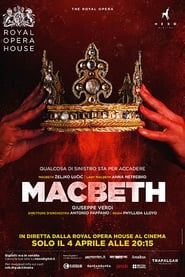 Verdis lifelong love affair with Shakespeares...
Verdis lifelong love affair with Shakespeares...The Royal Opera House: Verdi's Macbeth 2018
Verdi’s life-long love affair with Shakespeare’s works began with Macbeth, a play he considered to be ‘one of the greatest creations of man’. With his librettist, Francesco Maria Piave, Verdi set out to create ‘something out of the ordinary’. Their success is borne out in every bar of a score that sees Verdi at his most theatrical: it bristles with demonic energy.
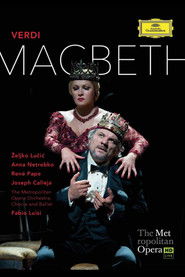 Star soprano Anna Netrebko created a...
Star soprano Anna Netrebko created a...Verdi: Macbeth 2015
Star soprano Anna Netrebko created a sensation in her first Met performances as the malevolent Lady Macbeth, the central character in Verdi’s retelling of Shakespeare’s tragedy. She is joined by Željko Lucic, who brings dramatic intensity and vocal authority to the title role of the honest general driven to murder and deceit by his ambitious wife. René Pape is Banquo, Joseph Calleja is Macduff, and Principal Conductor Fabio Luisi presides over Adrian Noble’s atmospheric production.
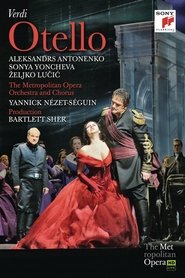 Tony Award winner Bartlett Shers bold...
Tony Award winner Bartlett Shers bold...Verdi: Otello 2015
Tony Award winner Bartlett Sher’s bold new production probes the psychological underpinnings of Verdi’s dynamic setting of Shakespeare’s great tragedy. At the helm of this performance is riveting conductor Yannick Nézet-Séguin, who brings out all the cascading emotions in Verdi’s turbulent score. Aleksandrs Antonenko is the Moor Otello, the triumphant general of the Venetian army who is ultimately brought down by the sly insinuations of his friend Iago (Željko Lučić). Sonya Yoncheva continues to win fans as Desdemona, Otello’s faithful and long-suffering wife. With Günther Groissböck as Lodovico and Dimitri Pittas as Cassio.
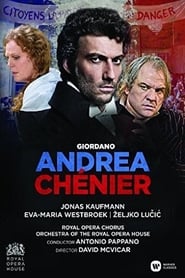 Kaufmann is performing the title role...
Kaufmann is performing the title role...Giordano: Andrea Chernier 2015
“Kaufmann is performing the title role for the first time, and it’s hard to imagine him bettered. His striking looks make him very much the Romantic and romanticised outsider of Giordano’s vision. His voice, with its dark, liquid tone, soars through the music with refined ease and intensity: all those grand declarations of passion, whether political or erotic, hit home with terrific immediacy.” – The Guardian Presented in its Covent Garden premiere in January 2015, this staging – directed by David McVicar and conducted by the Royal Opera’s Music Director, Sir Antonio Pappano – shows a bloody tricolour daubed with the words “Even Plato banned poets from his Republic” – written by Robespierre on the death warrant of the historical Chénier, a poet and journalist sent to the guillotine in 1794 for criticising France’s post-revolutionary government.
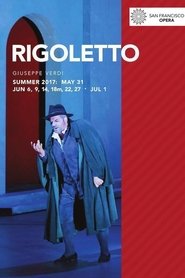 One of operas most vivid and...
One of operas most vivid and...San Francisco Opera: Verdi's Rigoletto 2012
One of opera's most vivid and compelling characters, a vengeful court jester, desperately tries to protect his daughter from disaster in this heart-wrenching tragedy. The first of two world-class casts led by Music Director Nicola Luisotti stars Željko Lučić, "whose vocal artistry is exceptional" (The New York Times); Aleksandra Kurzak, "a superstar in the making" (The Guardian, London); and, as the lecherous Duke, Francesco Demuro, "whose open, bright, superbly focused tone was reminiscent of Pavarotti" (Opera News).
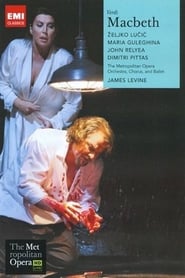 Verdis admiration for Shakespeare led to...
Verdis admiration for Shakespeare led to...The Metropolitan Opera – Verdi: Macbeth 2008
Verdi’s admiration for Shakespeare led to such masterpieces as Othello and Falstaff, and if the earlier Macbeth isn’t on their exalted level it’s still a powerfully dramatic opera that hews closely to the original’s story line. The MET’s production retains the dark aura of the opera while updating it to a vaguely post-modern context. So the witches are bag ladies in various stages of decrepitude, with children in tow. The Banquet Scene features lowered chandeliers, a plethora of chairs, and a slew of extras dressed in tuxedos and party gowns. Macbeth sports a leather coat, the soldiers are in drab brown uniforms and seem to have fingers on their triggers even when they’re supposed to be in non-threatening situations. Director Adrian Noble also has Lady Macbeth do an inordinate amount of writhing around and singing from a lying-down position, adding to the feeling that a less interventionist directorial hand might have generated more impact.
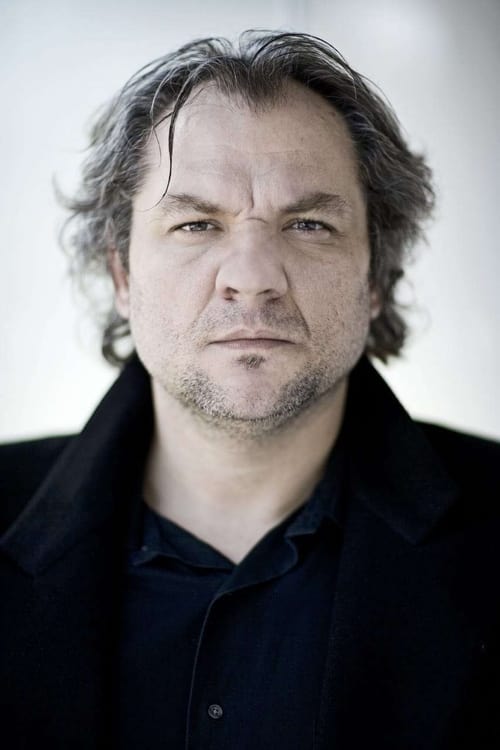
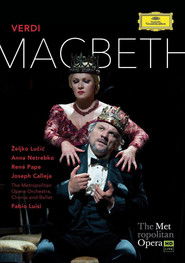 The Met Operas broadcast of Verdis...
The Met Operas broadcast of Verdis...